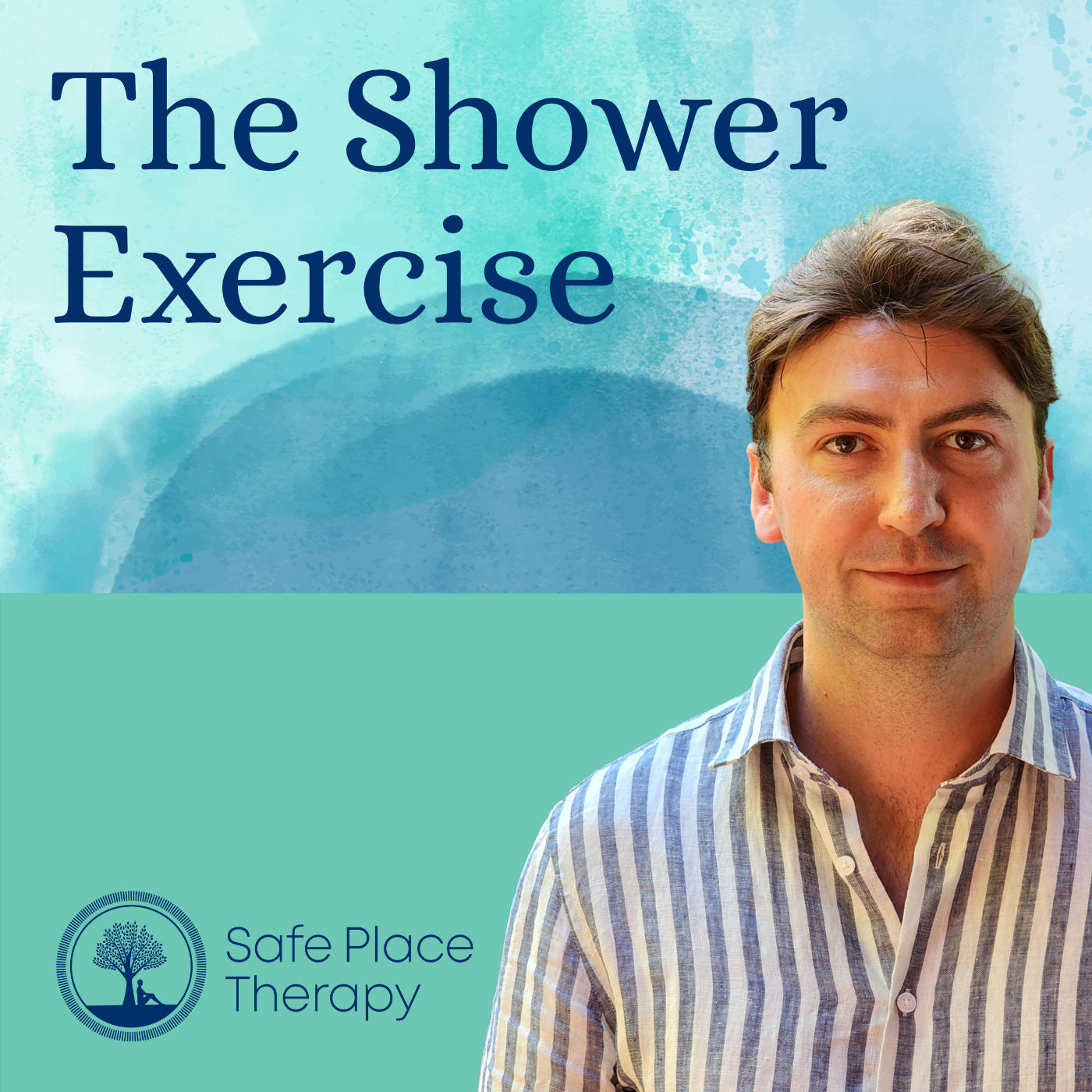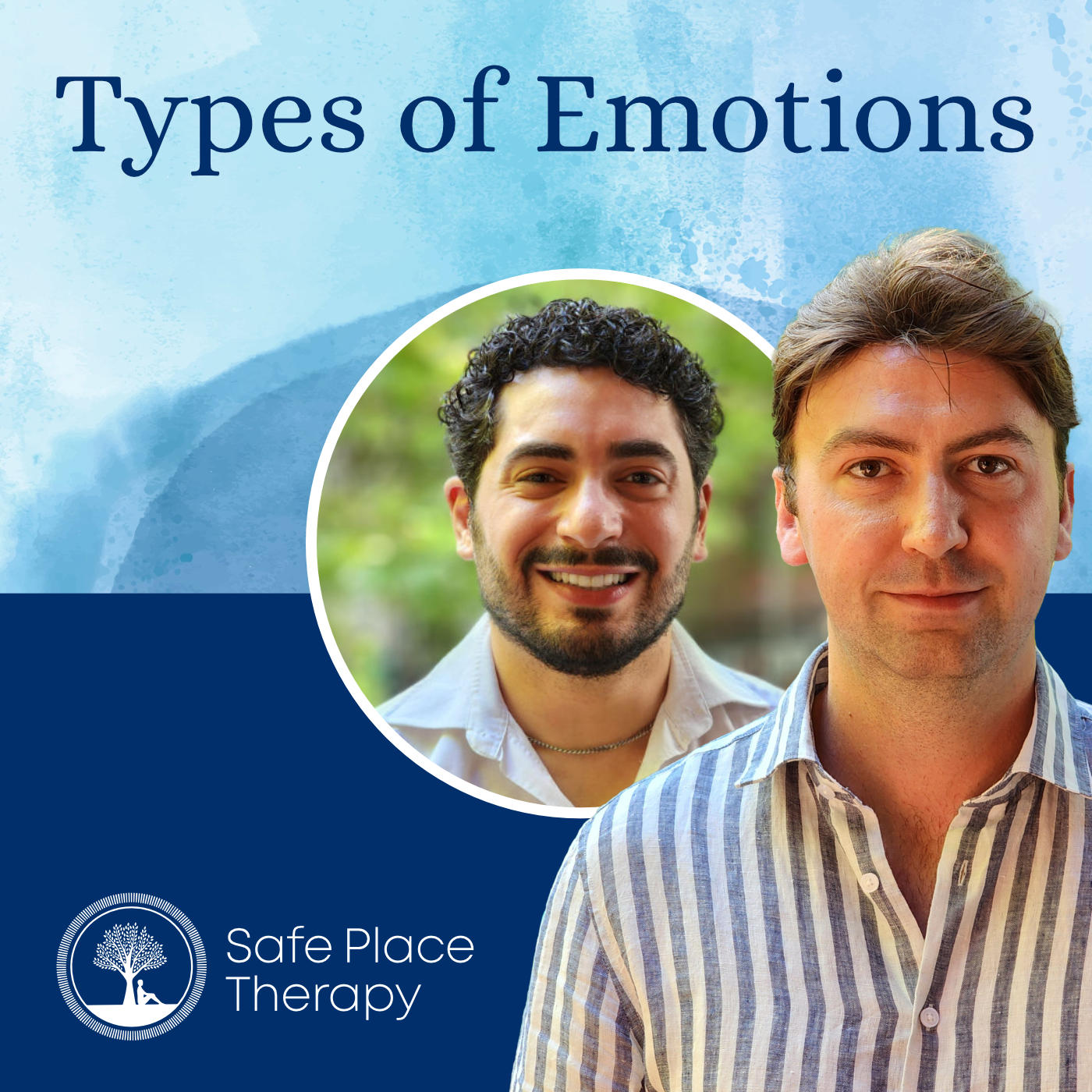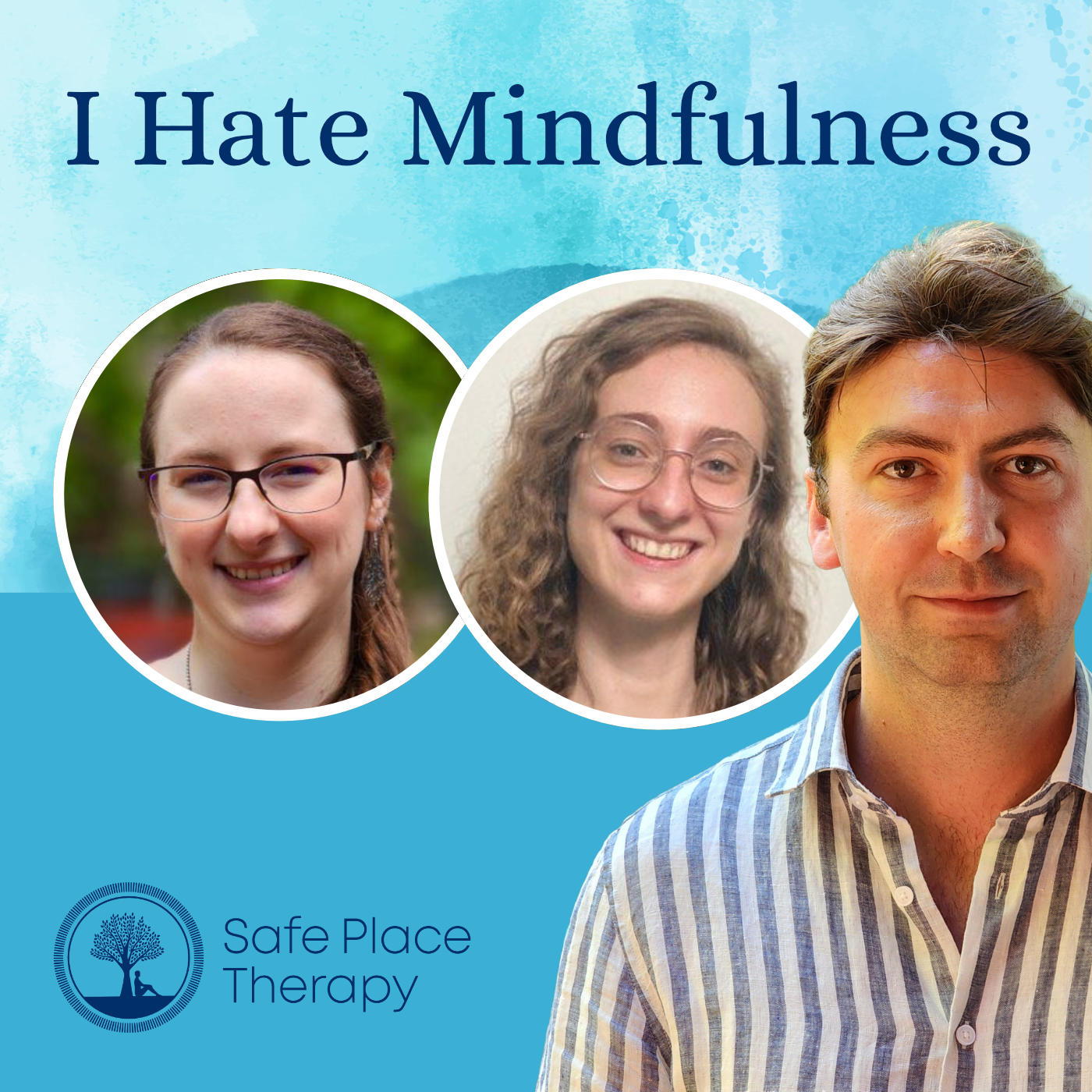Episode Transcript
[00:00:00] Foreign and welcome to the Safe Place Therapy YouTube channel.
[00:00:12] Today we're going to be speaking about a short little exercise that I like to call the shower exercise. All about kind of connecting couples, people in relationships to spiritual spend some time thinking about their partner and building more connection in their relationship. And before we get stuck in, I would like to acknowledge the traditional owners of the land in which we record today. And we're recording on the Kulin Nation. I'd like to pay my respects to elders past, present and future. And is this if this is the first time that you've tuned into us, please like subscribe or if you're a regular that's come back, welcome and share with a friend. These tools and videos and episodes are very much put together for many different listeners, many different people in situations where they need some support who might not have been to counseling before, but they're nice little snippets for people to spend some time on and digest.
[00:01:19] So I've actually taken this short little exercise based from a habit book that I've been listening to. And the author's name is James Clear.
[00:01:33] Shout out to James, who wrote a book called Automic Habits. And in that book, James explores this idea of habits, how to build habits, good and preventing bad habits. And he does a fantastic job on really tuning into the necessary details to help people build really successful habits for themselves.
[00:02:01] So one concept that James discussed is habit stacking, where all of us have regular habits that we do pretty consistently already and stacking a new habit on top of that to kind of help that new habit be stuck with an old habit. So with a shower exercise, where we're going to start with this idea that we all shower, we all bathe pretty consistently, right? Usually on a daily basis. So we've got our usual habit of doing that, and then we want to include a different kind of habit that's actually about connecting with your partner.
[00:02:42] Now, some people might be surprised by this idea, but often so many couples come to me feeling like there's not much spark happening in the relationship or they haven't really organized a date very, very often, or sometimes, dare I say, their partner kind of goes back of their mind because you've been together for many years and the kind of spark isn't there anymore. So this little exercise is all about building an association in our mind, like shower, with actually putting our partner front and center.
[00:03:25] So the next time you're in a shower, I want you to spend two minutes thinking about your partner.
[00:03:34] And while you're there, while you're scrubbing away, doing your thing. I want you to think about something small you can do as their partner to spark up their day. It could be a nice compliment. It could be you texting them and saying, hey, hon, don't worry about dinner tonight. Well, let's order in, right? So we're kind of associating the normal personal hygiene that we do pretty regularly. And we're stacking on a new idea, a new behavior that's really important in relationships.
[00:04:08] Now you might be sitting there thinking, well, my partner should just do this, right? It should be just an automatic initiative thing because they care about me. And yeah, you might be quite right there, but sometimes people get so lost in busyness.
[00:04:26] I'll do it later, you know, oh, we've got that event coming up in two months. So there's no point. We kind of get really lost in our automatic habits. Automatic busyness that really kind of swallows up conscious thinking and initiative.
[00:04:48] And that's, I think, part of the reason why lots of couples come and talk about the lacking of spark is purely and simply when not putting that time in.
[00:05:03] So, okay, let's pretend that your partner comes to you and says, hey, you look really nice today, or well done on that project last week, or, hey, I notice you've been really working hard at work doing A, B and C. How about we take the nut off? How about we go out for dinner, right?
[00:05:24] It seems really small if you're in a really strong relationship and that stuff is bubbling. But if it's not bubbling, if it's not happening, we often feel really isolated, uncared for.
[00:05:39] Also, people kind of really paint this idea around love languages or five love languages, and kind of tuning. Tuning into what they important to them, whether it be physical, touch, communication, what have you. And that's a great idea to kind of narrow down what your partner appreciates in terms of love. But even more basic than that, we need to show initiative, right? We need to take the time, carve out a little bit of space, and then think about our partner, think about our relationship.
[00:06:19] Now, another group of you might, might be going, why should I do that? Why can't my partner do it first? Or, you know, they're pissing me off, we're not in a good way. So what's the point of doing that? Okay? That's another important consideration. Maybe there's so much gross, shitty things happening that you actually need to talk through some of that first before you get to the nice stuff.
[00:06:46] We could easily counter that, though, by saying maybe we need some nice stuff first. We might not be able to trust it straight off because, you know, we feel like our partner's an.
[00:06:58] But we gotta start somewhere, right?
[00:07:02] If we're really bland, sometimes it's a bit weird receiving a nice spark, receiving a nice compliment or initiative. Right?
[00:07:14] But sometimes we need to take a little bit of a risk to connect, reach out, appreciate what's going on there, because that can take some real courage.
[00:07:26] Right?
[00:07:28] So let's recap. You're in the shower, in the bath, doing your personal hygiene thing. We're connecting a new habit here in a relationship where you're putting your partner, friend of mine, for a couple of minutes, thinking about your relationship, thinking about what they might appreciate, and really small things. A nice simple text, a nice, you know, block of chocolate, a nice, hey, let's go for dinner and thinking about your partner's needs.
[00:08:00] And please don't do this as a tit for tat transactional thing.
[00:08:04] We need to kind of start this initiative stuff because we actually want to care and we actually want to show love and care. Let's start there.
[00:08:15] And who knows how our partner will receive that, hopefully in good spirit. Hopefully, you know, that creates that spark. Right? But if there's some yucky, unreserved difficulties there, that might call for some more help, right? Especially if it hasn't happened in a really long time, especially if both partners feel isolated. Right? So I'm trying to carve this tool out for lots of different people in lots of different relationship statuses or conditions. But overall, you need to think about what's going on for you guys and the kind of support or the kind of help that might move you guys forward.
[00:09:03] Okay? So I'm asking you to take a step here out of your comfort zone.
[00:09:10] And that can be tricky.
[00:09:14] But if we are wanting to get to a 2.0 relationship where we're moving to something that is positive, sparky, you know, then we have to try something different and put it front of sign, front of mind, as an automatic thing that we consider outside of work, outside of the business, busyness that's happening.
[00:09:41] Okay? So take some time.
[00:09:44] Reflect on that as an idea if this is causing stress and anxiety too, you know, because it might not have happened very much in your relationship. Reach out for some help, but give it a go.
[00:10:00] And if you've enjoyed this tool, if this tool is kind of, you know, been pretty easy to implement and you want to pass it on to a friend, please do, please share this video, please like and Safe Place Therapy has oodles of information on our website, so please go have a look there. And we continue to try to be the safe place where you can talk. Right.
[00:10:27] And our website is available for more information. More videos are coming out, you know, every week. So we're really excited to educate, communicate tools, ideas, concepts for people to sink their teeth into and talk with their partner about talk with other people. Let's start new, interesting conversations rather than being stuck in old ones.
[00:10:54] Thanks for listening and please take care for now.





